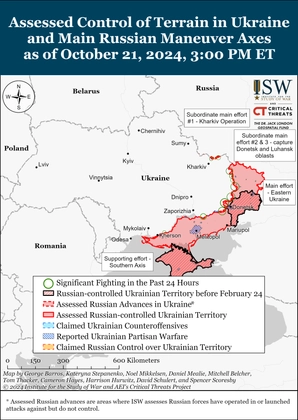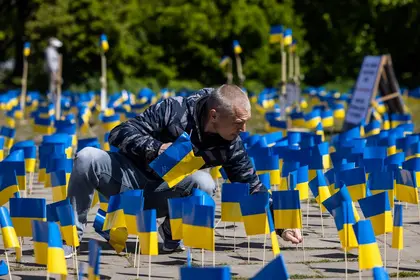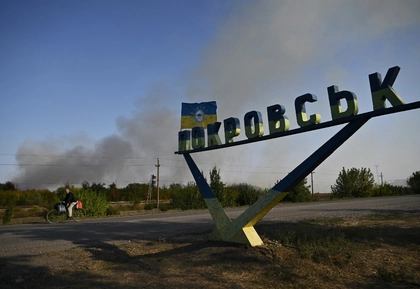Ukraine’s war with Russia is about having enough soldiers, bullets, and Western polling support. Russia’s army is sub-standard, and Ukraine’s better, but Putin’s principal strategy is to stretch out the conflict, no matter the cost of life, in order to cause fatigue within the democracies supporting Ukrainians. He hopes war weariness will benefit anti-war candidates in 2024 elections and lead to the withdrawal of military and financial support for Ukraine. That’s not happening, but measuring polling is tricky. Some surveys are nothing more than Kremlin disinformation, are questionable, or are misinterpreted by the media. But the good news is that credible polling results indicate that backing for Ukraine holds across the European Union (EU), Britain, Turkey, and America. And this is why on August 2 another 12 European nations joined the G7's joint declaration on "security guarantees" for Ukraine. Europe and America has become a gigantic security bloc that is powerful and committed to Putin’s defeat.
Support varies, but there is more consensus backing Ukraine than exists in each major region concerning other issues such as immigration, taxation, crime, and social benefits. In the United States, a national July 27 poll showed enormous bipartisan majority approval (seven-in-ten voters) in favor of continuing to provide Ukraine with significant military aid. That same majority opposed Ukraine entering peace negotiations before Russia withdraws its forces – a stance that supports Ukraine’s insistence that Russia must leave before talks are held. The partisan breakdown was 87 percent Democrats, 58 percent independents, and 55 percent Republicans.

ISW Russian Offensive Campaign Assessment, October, 22, 2024
JOIN US ON TELEGRAM
Follow our coverage of the war on the @Kyivpost_official.
There was even greater bipartisan support (eight-in-ten voters) for providing humanitarian aid and funds for infrastructure repair. Further, a bipartisan majority of 73 percent approved the Biden administration’s decision to allow NATO allies to send US-made F16 jets to Ukraine and to provide US training for Ukrainian pilots. (An August 1 poll in Israel stated that 76 percent of its Jewish population believes its famous “iron dome” air defence system should be sold to Ukraine.) And last week, Republican Presidential contender Chris Christie returned from a visit in Ukraine with Zelensky and filled American airwaves with his full-throated support for Ukraine’s cause, including that America should also provide F16 jets and long-range missiles.
 |
Unfortunately, on August 4, a misleading CNN headline read “Majority of Americans oppose more US aid for Ukraine in war with Russia.” That was not accurate. Its poll results were that 56 percent were concerned (not opposed) that more aid to the war would threaten US national security — a percentage that was down significantly since February 2022 when 72 percent were worried about threats.
On July 20, the European Parliament issued results from important polls and surveys taken across the European Union and its 30 nations about the war, including some results from America. Here are the highlights:
Military support. About 64 percent of Europeans agree with purchasing and supplying military equipment to Ukraine. Highest approvals of more than 90 percent for this occurred in Sweden, Portugal and Denmark and lowest approvals were in Bulgaria (30 percent), Cyprus (36 percent), and Slovakia (37 percent). Half of Poles supported providing security guarantees to Ukraine in the future, providing all NATO members do so too. About 42 percent of Germans supported existing military support, 30 percent called for greater involvement militarily, and 23 percent wanted supported reduced. But in outlier Hungary, 64 percent opposed providing more EU funds to Ukraine for any purpose.
 |
The Future of the War:
About 75 percent of Hungarians want an immediate ceasefire — opposed by Ukraine (and Americans) because that would allow Russia to keep its illegally occupied territory. The Euro polls show that three in five Americans say Russia is losing the war in Ukraine (61 percent) and 62 percent describe the war as a stalemate without a clear-cut winner as yet.
Defence and territorial integrity:
Three-quarters of all Europeans want a stronger, united European foreign policy. There is similar support for increased defence and security cooperation. But in Italy, only 13 percent of respondents believe that their country should increase its military spending while 46 percent agree with the status quo which is an Italian defence budget of 1.557 percent of GDP, below the 2 percent NATO commitment. (Most NATO members are below the commitment but those that will meet the obligation will jump this year.) The Europeans noted that 56 percent of Americans believe that European allies are not doing their fair share to assist Ukraine.
Russia’s image/Putin
After Wagner’s mutiny in Russia, 44 percent of Germans believe Putin is weakened, 43 percent see no change, and 8 percent think he’s stronger. In Italy, 75 percent of respondents expressed concern about the Wagner mutiny and its implications, 14 per cent do not, and 11 percent said they don’t have enough information to have an opinion. (Euro results noted that a Russian Levada Center poll said after the mutiny 68 percent of Russians want Vladimir Putin to be re-elected in the 2024 — but anything out of Moscow is disinformation.)
EU enlargement:
About 64 percent of EU respondents agree with giving Ukraine candidate status, ranging from 90 percent in Portugal, 85 percent in Sweden, 84 percent in Lithuania down to 42 percent in Bulgaria, and 47 percent in Austria and Cyprus. Also, 88 percent of Europeans agree with providing humanitarian support and 86 percent agree with welcoming war refugees into the EU.
Britain, now outside the EU, plays an out-sized role in the war, along with the United States. Its polling shows overwhelming support for Ukraine: Eight out of ten Britons want Ukraine to win. Half of Britons believe other European countries aren’t doing enough to prevent the Russians from winning the war in Ukraine, including 22 percent who think Britain is not doing “nearly enough”. Only 17 percent think the West as a whole is providing enough support, while 3 percent think too much support is being given, and 27 percent are unsure. About 43 percent think Britain’s level of support is sufficient and 28 percent believe more should be allocated. But 45 percent of Britons see the war as a stalemate, saying that neither side has the advantage.
Another major player is Turkey, not an EU member as yet, but a ranking NATO member with the military alliance’s second largest military force, consisting of of 775,000 military and paramilitary personnel in 2022. More than 90 percent of its public is concerned over Russia's invasion of Ukraine, according to the latest edition of the Aksoy Research company's Turkey Monitor survey. But 78.2 percent want Turkey to remain neutral in the war, because of its sizeable economic relationship with Russia. However, the majority support Turkey’s membership in NATO, which will become involved in direct war with Russia under the NATO charter if just one member is attacked.
Ukraine’s calamity and Russia’s war crimes have united Americans and Europeans more than ever around the issue of security since the end of WWII. Finland and Sweden just joined NATO, Cold War levels of military expenditure have returned in Central and Western Europe, now totalling $345 billion in 2022 – surpassing 1989 levels and seven times’ Russia’s $50-million defence budget (which it’s doubling). According to the Washington Post: “The 30 member states can field an impressive 1.3 million active-duty military personnel, roughly on par with the size of the U.S. armed forces (approximately 1.4 million) and significantly bigger than Russia’s military (850,000).”
There is a de facto European armed forces, an issue that has been around for a time and will remain on the front burner once this nightmare is over. In 2018, France’s Emmanuel Macron called for a “true European army”. That year, EU Commission President Ursula von der Leyen, then Germany’s minister of defence, concurred: “The time is ripe for an army of Europeans committed to peace on our continent and in the world. Deeds must now follow words.”
Tragically, it never happened. Now is the time.
The views expressed in this opinion article are the author’s and not necessarily those of Kyiv Post.
Reprinted from [email protected] - Diane Francis on America and the World
See the original here.
You can also highlight the text and press Ctrl + Enter








